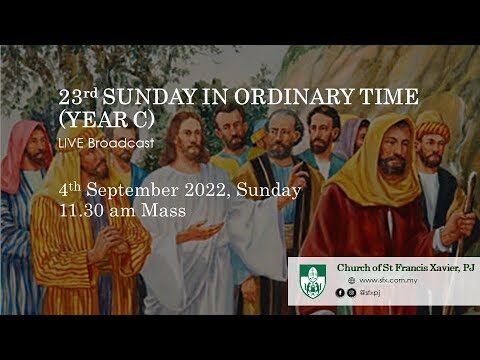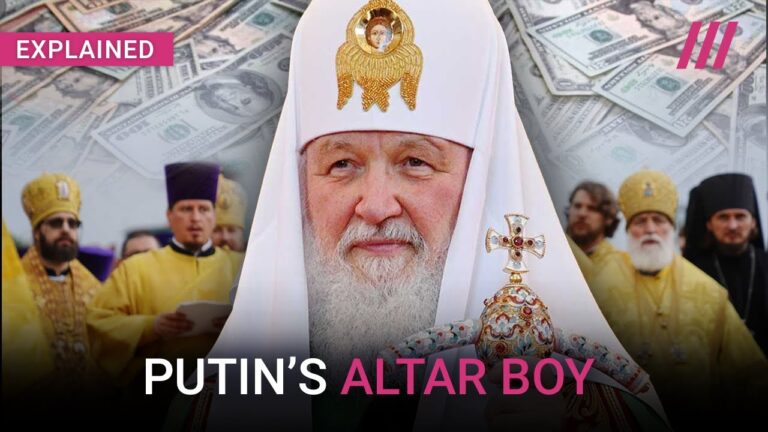The Catholic Church’s Influence in Russia
The relationship between the Catholic Church and Russia has evolved through centuries of political, cultural, and religious shifts, marked by both collaboration and tension. As the largest Christian denomination in the world, the Catholic Church navigates its mission amidst the complexities of Russian history and society, where Orthodox Christianity predominates. This dynamic interaction not only influences interfaith dialogue but also shapes broader geopolitical landscapes, making the Catholic Church’s presence in Russia a compelling topic of exploration.
How does the Catholic Church influence Russia today?
The Catholic Church influences Russia through interfaith dialogue, cultural outreach, and promoting social values, despite the dominance of the Russian Orthodox Church.
Is the Catholic Church involved in activities in Russia?
The Catholic Church maintains a modest presence in Russia, characterized by approximately 220 parishes scattered across the country. This network serves a small community of around 600,000 believers, highlighting the Church’s role in a predominantly Orthodox nation. Despite these figures, the Catholic population remains significantly less than that of other religious groups in the region.
Among these believers, active participation in the faith is limited, with estimates suggesting that no more than 10 percent are regularly practicing their beliefs. This low engagement presents challenges for the Church as it seeks to foster a vibrant community and connect with the wider society. The Catholic Church’s efforts in outreach and education are vital in nurturing faith among its members.
Despite the challenges it faces, the Catholic Church in Russia continues to focus on building relationships within local communities and emphasizing interfaith dialogue. Its commitment to social justice and charitable activities resonates with many, providing a foundation for growth and solidarity. As the Church navigates its role in this diverse cultural landscape, its presence remains a testament to the enduring nature of faith in a complex environment.
What actions is the Catholic Church taking regarding the war in Ukraine?
Since the onset of the conflict in Ukraine, the Catholic Church, led by Pope Francis, has taken significant steps to support those affected by the war. The Pope has consistently used his platform to advocate for peace, offering prayers and public speeches that emphasize solidarity with the Ukrainian people. His efforts extend to humanitarian initiatives aimed at alleviating the suffering caused by the invasion, including the return of Ukrainian children who have been forcibly taken to Russia.
In addition to his vocal support, the Pope has mobilized resources within the Church to provide aid and assistance to those in need. This includes financial support for displaced families and cooperation with local organizations to deliver essential services. The Catholic Church’s actions reflect a deep commitment to promoting healing and hope amidst the ongoing crisis, aiming to foster a spirit of unity and compassion in a time of profound turmoil.
Are Russian Orthodox individuals allowed to attend Catholic Church services?
Russian Orthodox individuals can attend services and receive communion in a Catholic Church if they have no access to their own, but this practice is approached with caution. The Catholic Church respects the traditions of Eastern Orthodox Churches, which typically do not allow their members to partake in communion outside their faith. While it is permitted in certain circumstances, it’s advisable for individuals to consider the importance of their own religious affiliations and the implications of crossing denominational lines.
Unveiling the Power: The Catholic Church’s Role in Russian Society
The Catholic Church has emerged as a significant player in shaping Russian society, providing a moral compass and fostering community cohesion amidst a rapidly changing cultural landscape. With its rich heritage and commitment to social justice, the Church engages in a variety of outreach programs that address pressing social issues, from poverty alleviation to educational initiatives. By promoting values of compassion and solidarity, the Church not only strengthens its own congregation but also contributes to the broader societal fabric, encouraging dialogue and collaboration among diverse groups.
In a nation where Orthodox Christianity predominates, the Catholic Church’s presence serves as a bridge between different faith communities, fostering interreligious dialogue and mutual respect. This role is particularly vital in a time when social divisions can threaten national unity. By advocating for peace and understanding, the Church demonstrates that its influence extends beyond spiritual matters, playing a vital role in promoting harmony and resilience in Russian society, ultimately showcasing the enduring relevance of faith in contemporary life.
Faith and Politics: The Catholic Church’s Impact on Russian Culture
The Catholic Church has played a nuanced role in shaping Russian culture, often walking a delicate line between spiritual guidance and political influence. While the Russian Orthodox Church dominates the religious landscape, the presence of Catholicism introduces diverse perspectives on morality, community, and governance. This interplay fosters dialogue and reflection, encouraging both Catholics and non-Catholics to engage with broader questions about justice, ethics, and the common good, all within the unique tapestry of Russian history.
Moreover, the Catholic Church’s commitment to social issues resonates deeply in a society grappling with modern challenges. Its advocacy for human rights, education, and social welfare initiatives not only uplifts marginalized communities but also challenges the status quo, promoting an inclusive vision of society. As these efforts intersect with the political arena, they underscore the Church’s relevance and potential impact in a rapidly changing Russia, reminding citizens that faith can serve as a powerful force for positive transformation.
Sacred Connections: The Catholic Church’s Legacy in Russia
The Catholic Church’s presence in Russia has woven a complex tapestry of faith, culture, and resilience that spans centuries. Despite historical challenges and periods of repression, the Church has maintained a steadfast commitment to its mission, fostering a sense of sacred connection among its followers. This enduring legacy is evident in the rich traditions, art, and community outreach that have flourished, often serving as a beacon of hope in times of adversity. From the majestic cathedrals to the quiet corners of parish life, the Catholic Church has played a pivotal role in the spiritual landscape of Russian society.
In recent years, the Church has sought to strengthen its ties with the local population, promoting interfaith dialogue and social initiatives that address contemporary issues. By nurturing education, charity, and cultural exchange, the Catholic Church continues to build bridges within diverse communities, fostering mutual respect and understanding. This commitment to service and solidarity not only reinforces the Church’s relevance in modern Russia but also highlights the profound impact of its sacred connections that transcend borders, uniting individuals in a shared quest for spiritual fulfillment and communal harmony.
Bridging Divides: The Catholic Church’s Influence on Russian Identity
The Catholic Church has played a subtle yet significant role in shaping Russian identity, particularly in a society marked by historical divisions and cultural complexities. By promoting values of unity, compassion, and moral integrity, the Church seeks to bridge the gaps between diverse communities, fostering dialogue among different faiths and traditions. Its outreach initiatives and social programs not only address pressing societal issues but also encourage a collective sense of belonging among Russians. As the Church navigates the delicate balance between tradition and modernity, its influence continues to resonate, inviting individuals to reflect on their shared heritage and the potential for a more cohesive national identity.
The intricate relationship between the Catholic Church and Russia reflects a rich tapestry of history, culture, and faith. As the Church navigates the complexities of modernity and geopolitical tensions, its role in promoting dialogue and understanding becomes increasingly vital. With the potential to bridge divides and foster peace, the Catholic Church stands as a beacon of hope in a rapidly changing world, reminding us that unity in faith can transcend borders and bring about meaningful change.







